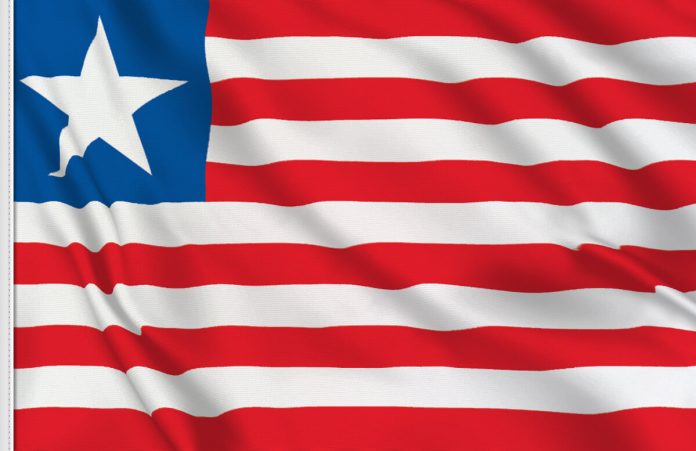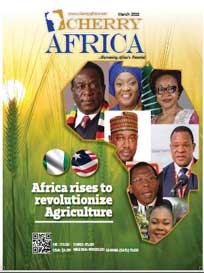Cees Harmon writes that Liberia now needs to address import propensity and step up production as food insecurity threatens.
The Liberian soil is rich for agriculture. and, According to a January 2001 edition of Newsweek Magazine, Liberia has the highest freshwater per capita in the world. With such natural assets, Liberia should perennially enjoy adequate food security. But that is not so, at least for now.
According to the latest Cadre Harmonise (CH) analysis of the Food and Agriculture Organisation (FAO) on Liberia, about 373, 000 people were estimated to be in CH Phase 3 (Crisis) and above between October and December 2022, of which nearly 7,500 in CH Phase 4 (Emergency), due to high food prices and a slow economic recovery from the Covid-19 pandemic-induced downturn. The situation is projected to worsen in 2023, as about 530,000 people are projected to face acute food insecurity during the June to August 2023 lean season period. This includes about 21,350 people in CH Phase 4 (Emergency).
As of October 2022, the country was hosting approximately 1,660 refugees, while nearly 90,000 people had been affected by floods by November 2022.
Levels of acute food insecurity are expected to increase in 2023. Food availability and access are likely to remain limited by high food prices and below‑average imports, exacerbated by the unfolding effects of the war in Ukraine on international trade and commodity prices. An expected further slowdown in economic domestic growth in 2023 is likely to compound food insecurity conditions for the most vulnerable households, according to the FAO.
Inflationary pressure and falling incomes are increasingly putting basic food beyond the reach of many households in Liberia. Moreover, with the current global food inflation, and Liberia’s dependence on imported rice, that staple is getting beyond the reach of many Liberians. Rice is Liberia’s staple of staples, a commodity that many believe contributed to the overthrow of two presidents in the country’s history.
The dire situation must have impelled the Liberian president, George Weah, to issue two Executive Orders affecting critical national issues germane to the security and well-being of citizens. One of the Executive Orders was on Friday, January 6, 2023, when he issued Executive Order #113 suspending the import tariff on rice.
Executive Order #113 is in consideration of the expiration of Executive Order #105 and the government’s commitment to ensuring that the prices of certain basic commodities on the market are affordable, and do not impose an unnecessary burden on the citizens.
“Now, therefore, the government of Liberia, in its desire to continue bringing relief to the public, hereby issues this Executive Order #113, suspending import tariff on rice as classified under tariff Nos 1005.30,00 (in packing of more than 5kg or bulk); 1006.30.00 (in packing of at least 5kg); and 1006.40.00 (broken rice) under the Revenue Code of Liberia Act with immediate effect,” asserted the President.
President Weah further indicated that Executive Order #113 is issued against the backdrop of an assessment and evaluation conducted by the government on the causes of increases in the price of various strategic commodities including rice with intent to ameliorate the situation.
In a more sustained move to ensure food security in Liberia, the European Investment Bank (EIB) and the Government of Liberia recently signed a €4 million agreement to study the West African nation’s rice sector in anticipation of large-scale investment to boost production, enhance food security and reduce dependence on imports.
The feasibility studies, financed by a grant from the European Development Fund under the Africa Investment Platform, will assess the entire rice value chain in Liberia, which produced just 170,000 tonnes of rice for its 5 million people in the marketing year 2021-22. By implication, Liberia produces on average 34 kilograms of rice per capita.
The studies will inform the design of an investment program by the EIB and Liberian partners expected to be launched this year, covering the entire rice value chain by improving production, building irrigation, upgrading food laboratories, and enhancing warehousing and logistics.
“Liberia is highly vulnerable to global food shocks, with more than two-thirds of rice consumed in our country being imported from abroad,” said Agriculture Minister Jeanine M. Cooper. “Liberia’s partnership with the European Investment Bank and the European Union will boost local rice production, create private sector jobs across our country and reduce agricultural dependency of other countries. The close cooperation between Liberia and Europe is strengthening food security and reducing the impact of the war in Ukraine and recent global economic shocks on Liberia.”
The importance of rice as a strategic commodity for Liberia continues to grow with its increasing population and the need to respond to nutritional challenges. The annual per capita consumption of rice (about 133 kg per year) in the country is among the highest in Africa. To meet the high demand, Liberia imports nearly 300,000 metric tons annually, costing an estimated US$ 200 million.
The country relies significantly on imports to meet its domestic cereal requirements. In the 2022 calendar year, imports of rice were anticipated at 350,000 tonnes, about 6 percent below the five‑year average. Imports of wheat and wheat flour in 2022 were anticipated at a historic low of 12,000 tonnes, nearly 75 percent below the five‑year average. The reduced imported quantities of cereals are mostly associated with global supply chain disruptions, high international prices, and the interruption of shipments of wheat from the Black Sea Region, amid macroeconomic difficulties that limited the country’s import capacity.
As of May 2022 (latest available data), retail prices of imported rice increased on average by 8 percent year‑on‑year, with peaks of up to 35 percent year‑on‑year in some southeastern regions, particularly River Gee County. Prices of other key food products, including palm oil and cowpeas, registered significant increases, and, as of May 2022, they were up to 65 percent higher on a yearly basis. The high prices of rice and other food products mostly reflect the increased transportation costs and trends in international markets of essential commodities.
While Liberians relish eating rice, the Liberian soil is not the most suitable for rice production. And that has been the situation for generations. A $200 million bill for the annual importation of rice for a country with an annual budget of US$806,587,341 is not sustainable.
An agriculture economist, Peter Gbelee, told this medium that Liberia does not have problems associated with natural conditions to produce food, but needs palate change. He said the government needs to give adequate statistics to give direction to the public on food production and consumption.
However, an improved economy will reduce Liberians’ vulnerability to food insecurity. Liberians will be able to afford the food they want to eat when the economy improves, an opposition politician noted.















